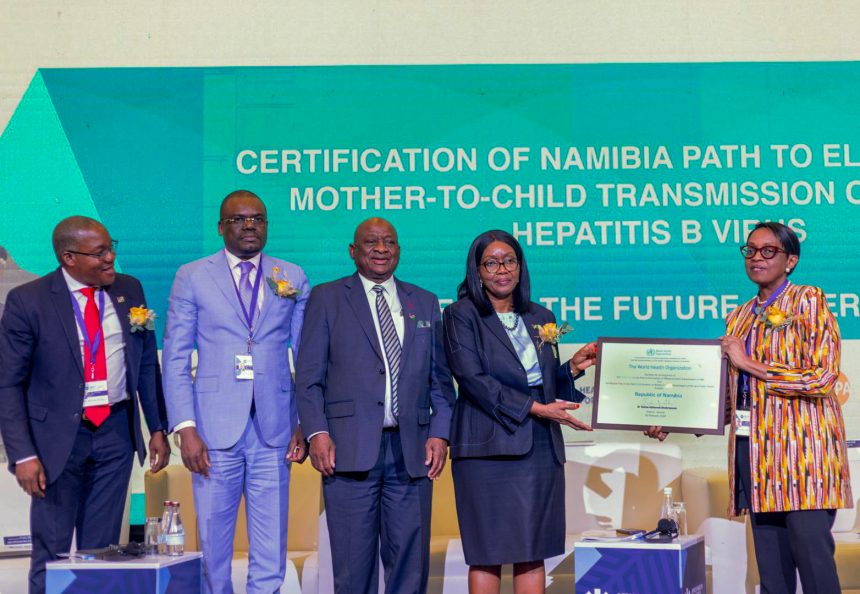In 2023, Namibia’s groundbreaking progress against HIV earned high praise from the United Nations, with 95% of adults aged 15-49 knowing their HIV status, 97% receiving treatment and 94% achieving viral suppression.
Namibia has become the first high-burden country in the world and the first nation in Africa to reach a major milestone toward eliminating vertical mother-to-child transmission of HIV and viral hepatitis B, the World Health Organization (WHO) said.
The health agency noted that HIV testing for pregnant women is available almost universally across the country, and access to treatment has led to a 70% reduction in vertical transmission over the past 20 years.

In 2022, only 4% of babies born to mothers living with HIV acquired the virus. Almost 80% of infants received a timely birth dose of the hepatitis B vaccine, one of the key metrics of success on the path to elimination,” the statement said.
WHO said it has awarded Namibia the “silver tier” for progress in hepatitis B control and the “bronze tier” for progress in HIV control, adding that the government has integrated primary health care with antenatal, child health and sexual and reproductive health services.
The government has also provided stable domestic funding for national health programs that provide widely accessible, quality and free clinical services and support, as the organization pointed out.

This is a landmark achievement by Namibia that demonstrates the life-saving possibilities of committed political leadership and effective implementation of public health priorities,” Matshidiso Moeti, WHO Regional Director for Africa, said. “With concerted efforts, we can accelerate progress to reach the goals of ending mother-to-child transmission of HIV, hepatitis B and syphilis – the triple elimination.”
WHO awards bronze status to a country where vertical mother-to-child transmission is reduced to less than 5%. Silver status is awarded if at least 50% of infants in a country have received the hepatitis B vaccine.
The WHO Triple Elimination Initiative works to end the vertical transmission of HIV, syphilis and hepatitis B, which is widespread in low- and middle-income countries. It encourages countries to integrate services using a people-centered approach to improve maternal and child health.
Last year, the UN expressed confidence that Namibia would end AIDS as a public health threat by 2030.
SOURCES: NEWS AGENCIES








